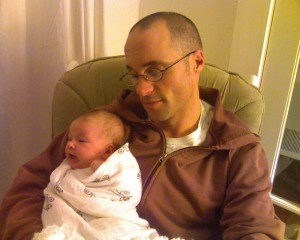
For me, creativity and the creative process is not limited to those times when we are in our so-called right brains or coming up with new and innovative ideas. It also includes those times when we draw upon the skills that we’ve developed over time to bring our creative insights into some sort of fruition.
Still, there are those moments of insight and creative flow that are distinct from those times when we a just carrying out the tasks of the day. According to this article from Psychology Today entitled, “Creativity Happens When You Least Expect It: We are most creative at our non-optimal time of day” by Sian Beilock, the experience of creativity happens when your brain is not on overdrive. Check it out:
But not all tasks require working memory for success. In fact, sometimes people’s ability to think about information in new and unusual ways can actually be hampered when they wield too much brainpower. This means that what we think of as our optimal time of day, may not be optimal for everything.
Recent research confirms this idea. In a paper published last December in the journal Thinking and Reasoning, psychologist Mareike Wieth and her colleagues found that when people have to solve “insight problems” that require a high degree of creativity, solvers are much more successful when they tackle these problems at the time of day in which they are least alert.
It’s well known that there are circadian or daily rhythms in basic physiological functions like body temperature or digestion. Interestingly, these circadian rhythms extend to our psychological abilities too. Simply put, we tend to have more brainpower at our peak circadian arousal time, which leads to success on activities that require us to concentrate and mentally ‘buckle down.’
Morning types (i.e., people who are most alert in the morning) excel on a whole host of cognitive tasks when they complete these tasks early in the day. This is especially true for tasks that require working memory, like systematically reasoning through a problem or juggling numbers in your head. As I have blogged about before, working memory is our flexible mental scratch pad. It’s the brainpower that helps us keep what we want in mind and what we don’t want out. On the other hand, evening types, those who are most alert at night, tend to perform at their best on demanding cognitive tasks later in the day.
For the full article, go here.
We should be aware of the important points in this article. Thanks for letting us know.